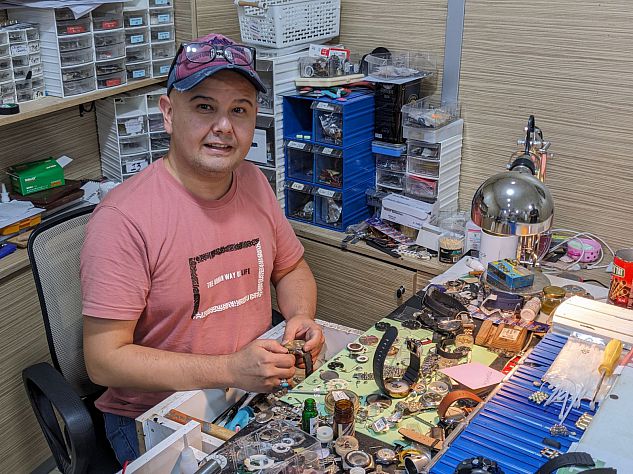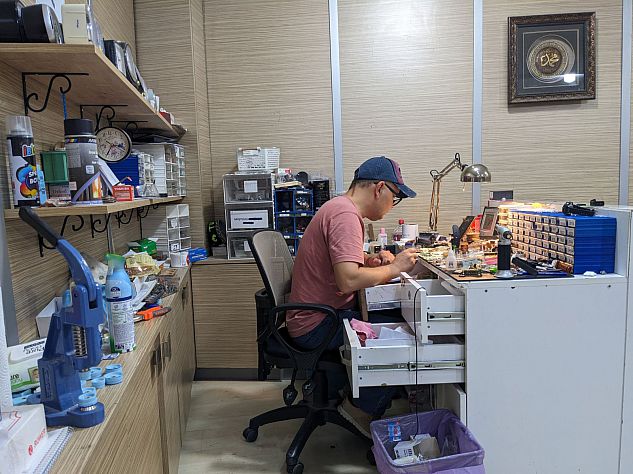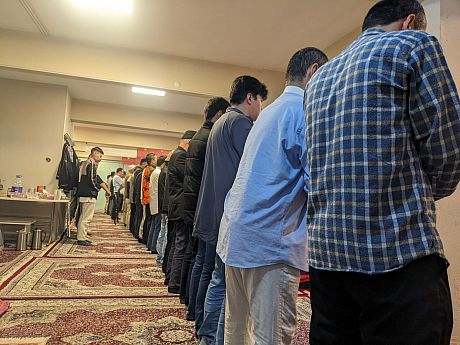Reflection on Abdullah's family
Written by Professor Magnus Marsden

Above: Abdullah Kamal
In October, I visited the small industrial city of Çerkezköy located about an hour’s drive to the west of Istanbul. Çerkezköy has become the home over the past five years to several hundred families from northern Afghanistan who have emigrated there from Jeddah, Saudi Arabia. Having visited Jeddah in 2016, I was keen to explore this community’s move to Turkey. Many of Jeddah’s Afghans were the decedents of Muslim families that had fled the Emirate of Bukhara in the 1920s after its incorporation within the Soviet Union.
In Çerkezköy, I spent most of my time with a friend from Afghanistan who lives there, Abdullah Kamal. I first met Abdullah in 2012 in Dushanbe, Tajikistan, where Abdullah ran a watch repair business. Abdullah’s family left Kabul in the early 1980s, thereafter living between Kabul, Dushanbe, and Karachi. In 2016, he and his family moved from Tajikistan to Turkey.
Abdullah is descended from families who had migrated to Afghanistan from Central Asia in the early twentieth century. Abdullah’s paternal grandfather fled Bukhara for Afghanistan in the wake of the Bolshevik revolution fearing his high status background would put him at risk. Having settled in the city of Mazar-e Sharif, he capitalised on his expertise in horsemanship and worked in the stables of a Buzkashi player, before moving to Kabul where he found employment as a cook.

Above: Abdullah in the watch factory where he works
Abdullah’s maternal grandmother also fled Central Asia in the wake of the Soviet revolution. A young girl, her family soon gave her in marriage to a man from her home region who had studied at the Islamic seminary of Deoband in northern India. After her husband’s death, she eventually moved to Kabul, working as a tailor and eventually remarrying. Abdullah’s father, the late Kamaludin Kamal, learned the skills of repairing watches. In the 1970s, he opened a shop of his own in the Pul-e Mahmoud Khan area of Kabul’s old city. In the early 1980s, after the Soviet invasion of Afghanistan in 1979, Abdullah’s father took the entire family to Karachi.
In the decades that followed, the family established watch and telephone repair shops in Karachi, Dushanbe, and, briefly, Kabul. They lived through intense communal violence in Karachi and civil war in Dushanbe. The family once had an opportunity to move to Canada as part of a refugee resettlement scheme. Abdullah’s grandmother refused to leave the land of her birth. She eventually died a refugee from Afghanistan in Tajikistan, a country in whose territory she had been born.

Above: Members of Abdullah's family, gathered for prayer
Abdullah married and established his own family. His children were born in Pakistan, Tajikistan, and in Turkey. "We have been refugees and moving around for four generations," he told me. "My children have been born in three different countries and now we live in Turkey and will soon by the Grace of God be granted Turkish citizenship." Abdullah family’s experiences of dispersal over decades have shaped their approach to life: "We always stay together," he remarked to me. "The last time members of my family opted to travel alone, they lost contact with their families forever. Even if we have opportunities to go somewhere better on our own, we prefer to remain together at all costs."
Download a PDF of the blog here.